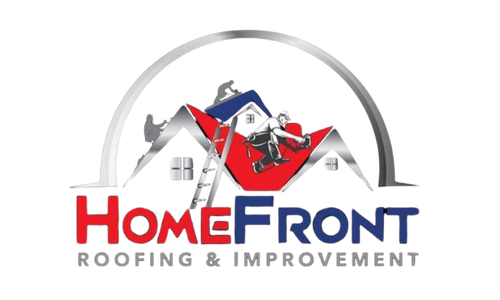Explore our FAQ to find helpful insights on roofing materials, insurance claims, project timelines, and more.
Have Questions? We’ve Got Answers
How do I know whether I need a knew roof?
Signs such as leaks, interior water stains, missing or damaged shingles, or
visible sagging indicate potential roofing issues. We recommend scheduling a professional inspection to assess the condition of your roof.
What is the typical lifespan of a roof?
The longevity of a roof depends on materials and maintenance. Asphalt shingles typically last 15–30 years, metal roofs 40–70 years, and flat roofs 10–20 years. Regular inspections can help maximize your roof's lifespan.
Should I repair or replace my roof?
The decision depends on the extent of damage and the roof's age. Minor issues may require repairs, while extensive damage or an aging roof might necessitate replacement. A professional evaluation can provide clarity.
How does storm damage affect my roof?
Storms can cause both visible and hidden damage. Hail can dislodge granules from shingles, reducing their effectiveness, while wind can lift or remove shingles. Post-storm inspections are crucial to identify and address such damages promptly.
What factors influence roofing costs?
Costs vary based on roof size, materials chosen, labor, and the extent of damage. We offer free, detailed estimates to provide a clear understanding of potential expenses.
How can I identify roof damage from the ground?
Look for missing shingles, visible sagging, or debris in gutters. However, some damages aren't visible from the ground. It's best to have a professional inspection for a comprehensive assessment.
Is it advisable to replace gutters during a roof replacement?
If your gutters are old or damaged, replacing them during a roof replacement can be cost-effective and ensure optimal water drainage.
We can assess and advise on the best course of action.
How do I choose the right roofing contractor?
Look for licensed and insured contractors with positive reviews and experience in your area. At Home Front Roofing & Improvement, we pride ourselves on our reputation and commitment to quality.
How long does a roofing project typically take?
The duration depends on the project's scope. Minor repairs might take a day, while full replacements can take several days. We provide time estimates during our consultation.
Can I handle minor roofing repairs myself?
While some minor tasks might seem manageable, roofing work can be hazardous. We recommend hiring professionals to ensure safety and quality workmanship.
How should I prepare my home for roofing work?
Clear the driveway and areas around your home to provide access. Remove valuables from walls and shelves, as vibrations can cause items to fall. Inform neighbors about the upcoming work as a courtesy.
What warranties do you offer?
We provide manufacturer warranties on materials and workmanship warranties on our services. Details vary based on the project and materials chosen.
How does a roof age over time?
Exposure to elements like sun, rain, and wind can degrade roofing materials. Regular maintenance and inspections can help identify aging signs early and extend the roof's lifespan.
How can I locate the source of a roof leak?
Leaks can be deceptive. Water might enter at one point and travel before appearing elsewhere. Our professionals use specialized tools to accurately locate and address leaks.
What are signs of hail damage?
Indicators include dented gutters, missing granules on shingles, and soft spots. After a hailstorm, it's advisable to have a professional inspection to assess potential damages.
What benefits does a new roof provide?
A new roof enhances your home's appearance, increases property value, improves energy efficiency, and offers peace of mind against potential leaks and damages.
How can I detect storm damage to my roof?
Look for missing or damaged shingles, water stains on ceilings, or debris in gutters. However, some damages might not be visible. We recommend a professional inspection after severe weather events.
Why hasn't my insurance company contacted me about storm damage?
Insurance companies typically wait for policyholders to file claims. If you suspect damage, it's essential to initiate the claim process promptly.
What should I do if my insurance check includes
my mortgage company's name?
Contact your mortgage company to understand their process for endorsing the check. We can assist in coordinating with them to ensure smooth fund release.
Is it possible to avoid paying my insurance deductible?
Legally, policyholders are required to pay their deductibles. We advise against any practices that suggest otherwise.
What do RCV, ACV, and depreciation mean in insurance terms?
RCV (Replacement Cost Value) is the cost to replace damaged property. ACV (Actual Cash Value) is the item's value after depreciation. Depreciation accounts for wear and tear over time.

